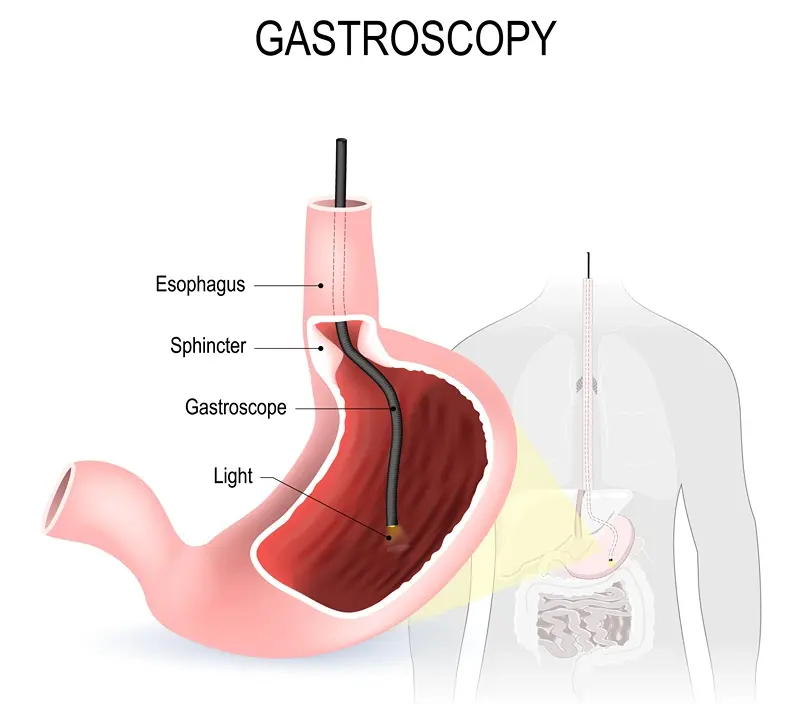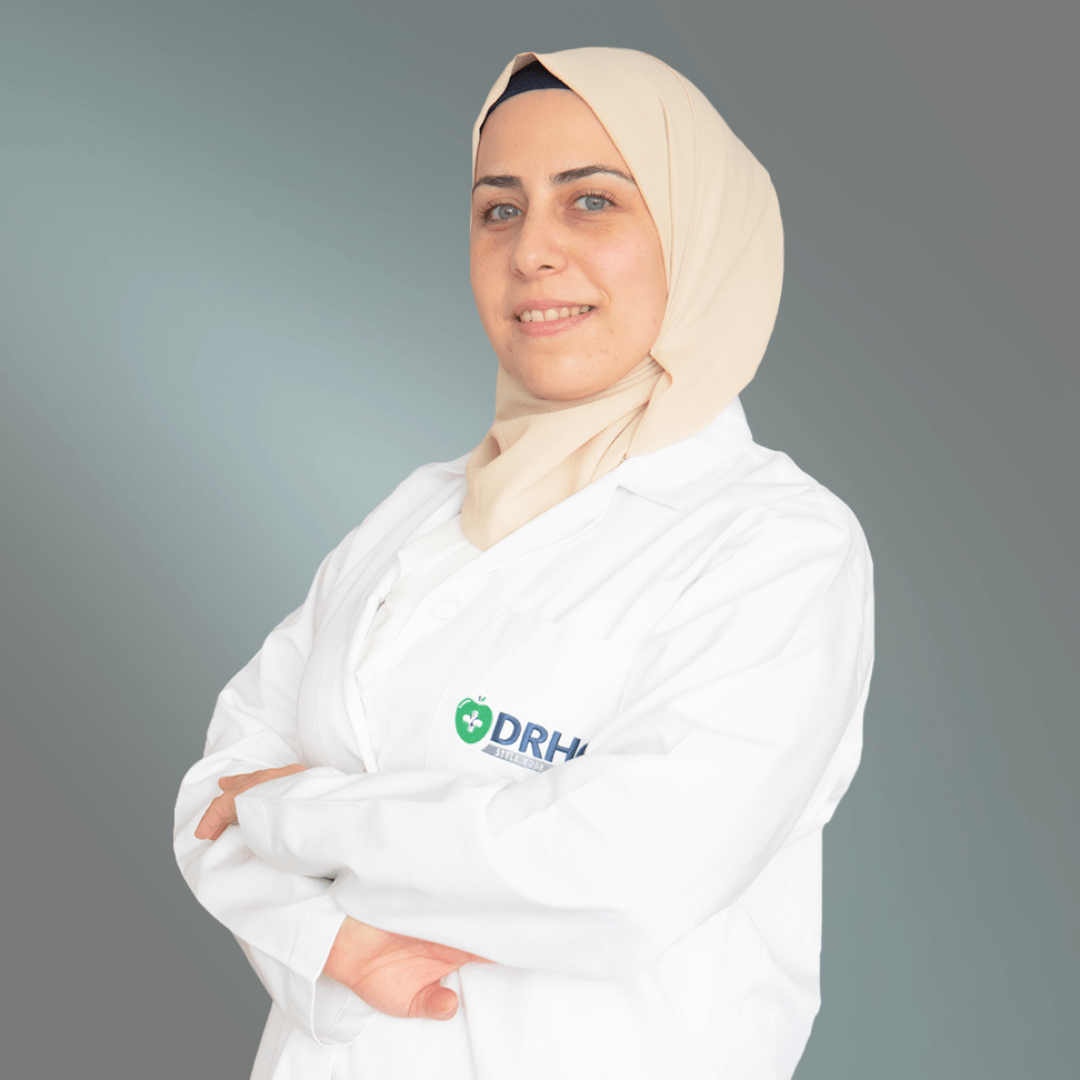Gastroscopy in Dubai at DRHC
Gastroscopy is a procedure we use to look inside the esophagus, stomach, and duodenum (the first part of the small intestine). It is done by introducing through the mouth a thin, flexible tube called an endoscope, as thick as a little finger. The tip of the endoscope has a light and a camera, and there is a side channel down which various instruments can be inserted in order to take biopsies and other treatment modalities.
During Gastroscopy:
- Gastroscopy is usually an outpatient day case. It can be a routine test that is commonly done. The operator will numb the back of your throat by spraying some local anesthetic or giving you light sedation to help you relax. The sedative may make you drowsy, but it does not put you into a complete sleep.
- It is done while you are lying on your left side. The endoscope is introduced through a plastic mouth guard in the mouth. It protects the teeth and prevents biting the endoscope. Then it's gently pushed further down. Pictures are shown on a screen from the video camera at the tip of the endoscope, where the doctor can check if there are any abnormalities.
- Air is passed down through the endoscope into the stomach to make the stomach lining more visible. The doctor then takes a biopsy sample if indicated, which is painless, and then the biopsy samples are sent to the laboratory for testing. After a thorough examination, the doctor gently pulls the endoscope out.
- This procedure usually takes about 10 minutes. But you should allow at least two hours for the whole process, preparation, sedation, and recovery. It may be uncomfortable, but it never causes hurt.
When to do it:
If certain symptoms occur and persist, such as:
- Recurrent indigestion.
- Recurrent heartburn.
- Pain in the upper abdomen.
- Recurrent vomiting.
- Difficulty or painful swallowing
- Black stools
Findings?
- Inflammation of the esophagus, stomach, or duodenum (areas of redness on the lining).
- Stomach and duodenal ulcers. An ulcer will look like a small, red crater on the inside lining of the stomach or on the first part of the small intestine (the duodenum).
- Inflammation of the stomach (gastritis) and inflammation of the duodenum (duodenitis).
- Esophageal, gastric, and duodenal cancer.
- Other rare conditions.
Preparation:
- You'll have to stop eating for 4-6 hours before the procedure, for the stomach has to be empty. You may be allowed small sips of water, but only for up to two hours before the test.
- In case you have a sedative, you will need somebody to accompany you home.
- Some medications may need to be stopped before the test; the doctor will advise you about that.
After:
- You can be ready to go home after resting for half an hour or so.
- You can resume normal activities after 24 hours, but you shouldn't drive on the very same day of the procedure; you will need somebody to accompany you home.
- Usually, the result of testing any biopsy may take a few days.
Side-effects or complications:
- Usually, gastroscopies don't have any problem; however, you may have a mild sore throat only for a day or so, also you may feel a little bit of tiredness or sleepiness for several hours if you have a sedative. There is a slightly increased risk of developing a chest infection or pneumonia following a gastroscopy.
- In case of abdominal pain, fever, difficulty breathing, and/or vomiting blood, then you'll have to contact your doctor.
*Click here to learn more about the Gastroscopy Package*
.png?width=281&height=59&name=bookanappointment%20(1).png)
Dubai Gastroenterology Clinic - Dr. Rami Hamed Center now provides the best gastroenterologists in Dubai for Gastric balloons, Colonoscopy, and Colon Cancer Screening, among other necessary treatments for the intestinal system. To book Your Appointment, just call us at +97142798200 for a consultation with the Gastroenterology Clinic at DRHC Dubai.




.png?width=281&height=59&name=bookanappointment%20(1).png)




